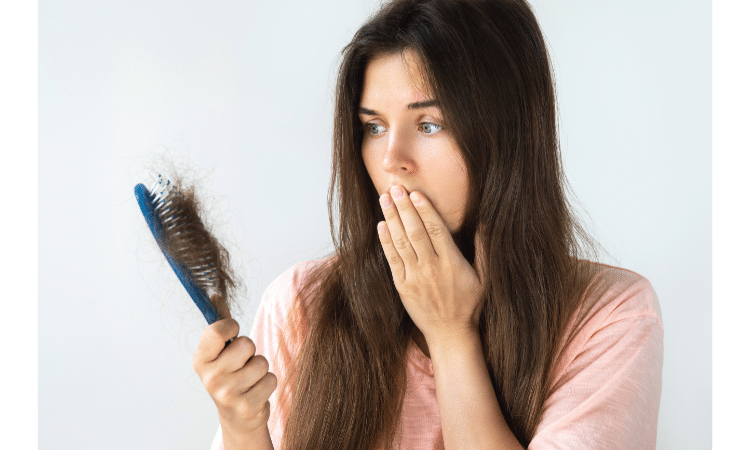
When it comes to discussing matters related to hair health, several factors are worth considering. Amid all the noise about dietary supplements, one nutrient seems to be garnering attention — Selenium. The question is: How does selenium impact hair loss or growth? Let’s investigate.
What is Selenium?

Selenium is a trace mineral, which means your body needs it in small amounts. It’s a powerful antioxidant that protects your cells from damage, boosts the immune system, and plays a vital role in maintaining a healthy metabolism. But does this translate into benefits for hair health? Let’s delve into the matter.
Selenium and Hair Health
Selenium and Hair Loss

There’s a common belief circulating that selenium is good for hair loss. But the real scenario is a bit more complex. Inappropriate selenium levels, whether too high or too low, can contribute to hair loss. So, a balanced intake of selenium is crucial.
- Can selenium cause hair loss?
Excessive selenium intake may lead to a condition called selenosis, which can cause hair loss, among other side effects. So, it is correct to say that too much selenium can cause hair loss.
- Can selenium deficiency cause hair loss?
Similarly, selenium deficiency can also contribute to hair loss. A study published in the Journal of Trace Elements in Medicine and Biology revealed that selenium deficiency might be a factor in diseases characterized by hair loss, such as alopecia.
So, when it comes to selenium, balance is key. Both high and low selenium levels can cause hair loss.
Selenium and Hair Growth

The role of selenium in hair growth is slightly less understood, but emerging research indicates potential benefits.
- Does selenium help with hair growth?
Selenium is a crucial component of certain enzymes involved in hair growth. It can help reduce inflammation and prevent hair follicle damage. Therefore, it seems logical to ask:
Is selenium good for hair growth?
While there isn’t a definitive answer, it’s safe to say that balanced selenium intake, as part of a nutrient-rich diet, can contribute to healthy hair growth.
So, How Much Selenium for Hair Growth and Loss?
The recommended dietary allowance for selenium varies with age, sex, and life stage. The National Institutes of Health suggests that adults should aim for about 55 micrograms per day.
Please remember, selenium is a nutrient where more isn’t always better. Consuming too much selenium can cause hair loss and other health issues. Therefore, it’s critical to consult with a healthcare provider before taking any supplements.
Selenium and the Immune System

Besides its potential role in hair health, selenium helps the immune system. It contributes to the production of antibodies and activates certain immune cells. This connection further underscores selenium’s importance in maintaining overall health.
Selenium and the Body
The impact of selenium goes beyond just hair health and the immune system. Selenium affects the body in various ways, including thyroid function, reproduction, DNA synthesis, and protection from oxidative damage.
The Final Word
When it comes to hair health, there are no simple answers. While selenium does play a role in hair health, the key takeaway is that balance is critical. Consuming too much or too little can lead to problems, including hair loss.
So, will selenium help with hair loss? Yes, but only if your diet lacks this mineral. And, can selenium help hair growth? Potentially, as long as you maintain the right balance.
While the research is still emerging, maintaining a diet rich in a variety of nutrients, including selenium, is the best strategy for supporting healthy hair. However, always consult with a healthcare provider before starting any new supplement regimen.











